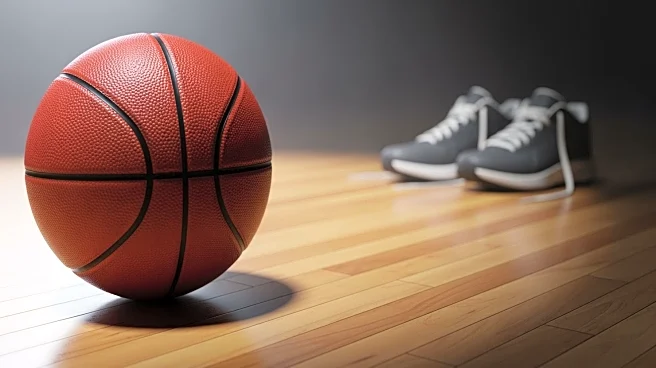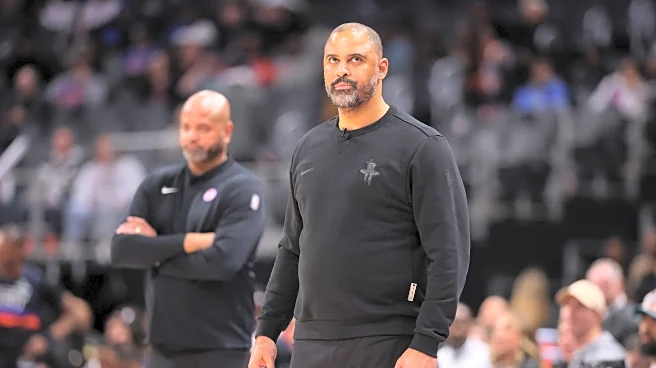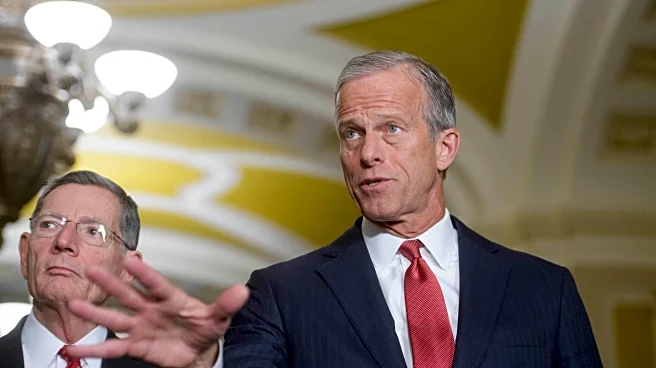
Addressing Thomas Müller’s departure from Bayern Munich is difficult for anyone who has watched the sport for long enough — he has deeply impacted modern football. Yet, most non-Bayern fans give a very
superficial recount of his career — his loyalty is praised, his humor is mentioned, and yet, rarely is there discourse on his skills as a player.
Arguably, we all grew up in an era of “aesthetics”. Picture-perfect dribbling and skills reign supreme and compilation videos do an endless favor to players who can pander to that audience. Game intelligence, though the cornerstone of football simply does not get enough credit, and that is where a player like Thomas Müller goes. A man with a trophy cabinet larger than some clubs’ entire legacies and yet, you would never see a loud compilation of his skills with phonk in the background.
Against this backdrop, Bayern, as a club, is obligated to deliver an appropriate farewell for a legend of his stature. The documentary aims to give a nostalgic lens into what was 25 years of service and a legacy that cannot be reached by any player, ever.
Where this documentary is different from the Amazon Prime “Einer wie Keiner” is the less dramatic approach. There is no lens into his personal life, no overt emotion and yet, it does not feel impersonal. The candid, anecdotal approach they take up in this setting actually contributes a much-needed personal touch. Additionally, while the Prime documentary often meandered in timelines and topics, The Original 25 stays on track. It is a proper chronological address, starting from his years in the academy, until his departure.
Müller explains that often, youth coaches are not credited as much as they should be. He credits his U-18 coach Kurt Niedermayer for believing in him like no one else could have. “The players who are here have, of course, a certain amount of talent, which we naturally want to develop and continue to develop, if possible, for our own professional team,” Niedermayer explained, in a clip from the early 2000s.
Further, Niedermayer explained the role of Hermann Gerland in deciding a player’s further trajectory — whether it would be with Bayern. Though it is known that Gerland played a key role in Müller’s introduction, it is revealed by Müller that he had to play his role in convincing der Tiger of his abilities.
Gerland, though trusted Müller to have a great career, still remains in shock. He explained that in retrospect, he could have never imagined Müller’s career taking the trajectory it did. “What I can be grateful to him for in retrospect is that he did campaign for FC Bayern to not just let me go to Hoffenheim, because, of course, he didn’t want to lose me,” Müller said, revealing that Gerland ensured he did not leave for Hoffenheim.
Gerland’s campaigning, of course, reached the first team. Jurgen Klinsmann, who managed the first team back in 2008 managed to get the 18-year-old Müller into the team. “[Jürgen Klinsmann] brought me in for the first time. He may not have played me much afterwards, but the thing is, it’s not that easy to rely on an 18-year-old. When you’re in your team and you realise, okay, it’s my first year here... and yet he gave me the chance and saw something in me,” Müller recounted, in gratitude.
Then came Müller’s turning point — the entry of Jupp Heynckes, following Heynckes’ departure. “In 2009, I’d been at FC Bayern for six weeks and then I saw Thomas, took him into the squad and brought him on as a substitute,” Heynckes narrated.
The treble-winning manager then left for Bayer Leverkusen, but wished to take Müller with him. Yet again, it was Hermann Gerland, who crusaded the efforts to make him stay.
“You won’t get him, I’ve already told Louis van Gaal that he’s a gem,” Gerland explained to Heynckes.
Müller talks about his first time meeting the fans. In 2009, he attended his first training camp in Donaueschingen, wherein they were to sign autographs for the fans after training. Recounting his anxiety in knowing no one would want his autograph, he had promised himself that in a year’s time, he would have fans demanding for it. Then, of course, the 2010 World Cup happened, and the world did demand for his autograph!
He recalled his call up to the national team. It was Bastian Schweinsteiger who had let Müller know of his call up. “I was always important for my teams, but to go to a World Cup and come back as the top scorer and best young player,” he exclaimed.
Müller believes 2013 to be amongst the most glorious times. The incredible run to the Treble in Wembley, especially following the disappointment of 2012 was rather satisfying. “... and then the fact that we actually managed to win the World Cup for Germany in Brazil in 2014 with parts of this Bayern core, was of course an incredible climax for this generation,” he said.
Often it is said that Müller has never been injured, which is far from the truth. Müller spoke of his biceps tear. He had injured it in 2012, against FC Koln and had chosen to play with the injury, and even chose to not get operated. Despite a stark deformity because of the ruptured muscle, he states that it was more important to keep playing and to keep fighting for a chance in the starting XI.
Then came in Pep Guardiola. A man from a completely different system, that arguably had no role for a player like Müller. While Pep struggled to place Müller in entirety and the latter expressed his inability to pass like Pep would expect, what they found worked was simply letting Müller play. “Especially in the last year under Pep, we knew each other better than in that whole period and he knew exactly where he wanted to play me, where he thought I would work best. And I also knew by then how his system worked and how I had to function,” Müller recounted.
The entry of Carlo Ancelotti, however, disrupted the harmony Müller had somehow managed to build back.
“In hindsight, it felt that Carlo Ancelotti knew me from the national team and my impression was that he felt I could somehow play as a right winger. I can to a certain extent if the types of players around me are right. With Carlo Ancelotti, however, we tended to have a system where the wingers often played in isolation and it was only logical for me that my strengths wouldn’t really come into play there, but perhaps my weaknesses would,” Müller elaborated.
Things took an even worse turn under Niko Kovač. Not only did Müller struggle to get placed, he was also being benched by Philippe Coutinho. “I then went to the club and said: Dear club, this is how my situation is right now I don’t like it. Of course, I accept it and give it my best every day, and if I’m picked to play again, I’ll give it my all,” he said, recollecting the way he handled the situation. Of course, later, the horrifying 5-1 defeat to Eintracht Frankfurt in 2019 closed doors for the Croatian manager.
Müller believes that Hansi Flick was perhaps the biggest turnaround of his career. Crediting his improvement as a player, he cites his record of 20 assists in two consecutive seasons.
A clip of Flick speaking on Müller plays. “He’s simply a player you always like to have in your team, someone who gives a lot for the team and who really always sees who is in a better position, which is why he has so many assists. And that’s why, for me, he’s a player who always has to play in this team,” Flick said in the clip.
“After Hansi Flick left, when I was in my early thirties, when I started getting a little less game time, when my role in the team and on the pitch didn’t involve quite as much responsibility, simply because of my sporting role, which was kind of fading out,” Müller says, speaking on his time under Julian Nagelsmann, Thomas Tuchel and Vincent Kompany.
A major part of the documentary is the clips of Joshua Kimmich, Leon Goretzka, Serge Gnabry, Manuel Neuer and Jamal Musiala, delivering their farewell messages to Müller. The former three spoke the most, delivering their gratitude for the years spent together. Goretzka urges Müller to express his emotions on leaving, to which Müller responded.
“You can be sure of this, Leon. I do allow myself to feel the emotions - only I really have the impression that I don’t feel the emotions that others are currently expecting from me. I don’t have the feeling something’s being taken away from me, so I don’t see why I should cry.”
“I think I’ll miss him as a person the most. To be honest, he’ll be missed in every way. I’m really going to miss playing Nintendo as a team with him. The other players are rubbish. I must admit the way he looked when he celebrated and jumped around often drove me crazy - and that’s why I think everyone will definitely miss that,” Musiala spoke fondly.
Neuer arguably has the closest relationship with Müller. The goalkeeper gave an emotional note of gratitude for the support the Raumdeuter had provided him over the years.
“We’ve always known, without having spent every second together, even off the pitch, that we trust each other, that we appreciate each other, that, ultimately, we speak with one voice as a leadership duo,” Müller spoke, responding to Neuer’s message.
“In the last few games or, let’s say, hugs or whenever we celebrated things together, there was still this... maybe that describes it, this final squeeze of the shoulder, there was still one more squeeze, as if to say: Hey, I especially don’t begrudge you that! Yeah, those were wonderful!” Müller spoke further. What is noteworthy is that the nostalgia and the sadness of departure hits him visibly only at this point.
After the messages of gratitude, Müller leaves a notepad on the bench. “Dear fan community. You drove my emotions. You were my fans and at the same time my harshest critics. You were my companions. Writer’s block. Merci. It’s been a blast!”
The visual of him walking towards the tunnel, as the voiceover of the note echoes, runs along with clips of his greatest performances... and there ends a 50 minute rollercoaster ride.
Mafia Verdict: Lots of tears incoming. Please watch at your own risk.
The documentary is available on YouTube.
More from bavarianfootballworks.com:
- A forgettable international match day for all Bayern Munich players involved
- Czech Republic vs Germany lineup, discussion: Time, TV schedule and how to watch World Cup Qualifiers online
- ‘What about Thomas Müller?' Support pours in for Bayern Munich's troubled icon
- BFW Transfer Deadline Day 2017 live thread
- Kingsley Coman confident of his part in Bayern Munich’s plans this season
- Report: Renato Sanches set for loan move to Swansea
- Would this guy be the perfect backup for Robert Lewandowski?













